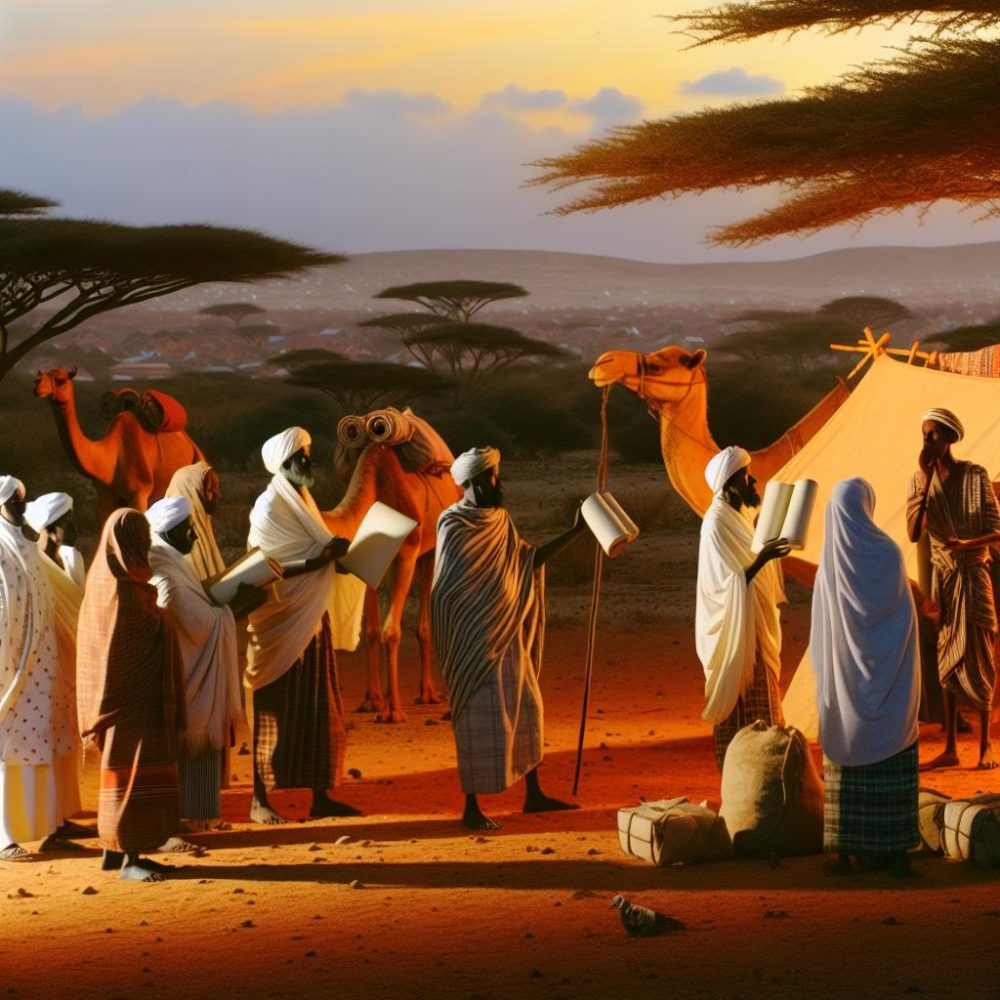
The Introduction of Islam in Somaliland
The arrival of Islam in Somaliland represents a pivotal historical event that significantly molded the cultural, religious, and social makeup of the region. Situated in the Horn of Africa, Somaliland came into contact with Islamic teachings early during the spread of Islam, which played an essential role in defining the region’s identity and historical path.
Early Contact with the Islamic World
Somaliland’s strategic location along the Red Sea coast served as a crucial entry point for early interactions with the Islamic world. This region’s closeness to the Arabian Peninsula, known for cities like Mecca and Medina, facilitated its connection to major economic and cultural developments through trade routes. The significance of maritime trade during this period cannot be understated, as it was instrumental in building these early connections.
Merchants and sailors were among the first to carry Islamic teachings to Somaliland. The Somali coast became a frequented destination for traders from the Arabian Peninsula, Persia, and India. These merchants were engaged in more than just economic exchanges; they shared cultural and religious ideas that laid the groundwork for the gradual introduction of Islam to the local inhabitants. The resulting interactions over time contributed to a milieu conducive to religious transformation.
The Role of Arab Settlers
Arab settlers played a critical role in the wider dissemination of Islam in Somaliland. Distinct from the transient traders who passed through, these settlers established enduring communities, integrating themselves into local society over time. Their presence proved significant in spreading Islamic teachings through personal interactions as well as through the establishment of religious educational institutions.
These settlers introduced the local population to Islamic practices and beliefs, leading to the incorporation of these elements into the socio-cultural framework of Somaliland. The process was gradual but persistent, and over generations, the indigenous people adopted Islam, fostering its widespread acceptance.
The Influence of Islamic Scholarship
Islamic scholarship gained prominence in Somaliland with the emergence of Islamic centers that became integral to the religious landscape. Linked with mosques and schools, these centers became foundational for disseminating Islamic jurisprudence, philosophy, and scientific knowledge. The educational activities conducted in these centers attracted students from across the region, thereby bolstering Somaliland’s role as a center of religious learning.
The reinforcement of religious scholarship also supported the expansion of Islamic ideas further into the Horn of Africa. These academic exchanges played a pivotal role in embedding Islamic thought into the region, highlighting the interconnection between education and culture in the proliferation of Islam.
Islam and Indigenous Culture
The integration of Islam into the indigenous cultural milieu in Somaliland was characterized by a gradual synergy between Islamic and local traditions. Over time, Islamic rituals, celebrations, and laws became embedded in Somali culture. Native customs and communal structures were also influenced by Islamic principles, which facilitated a sense of cohesion and unity among the various Somali clans and communities.
The blend of Islamic and local traditions contributed to a unique cultural identity, emphasizing a shared heritage that helped unify diverse groups. This cultural amalgamation underscored the adaptability and resilience of both the Islamic and indigenous cultural elements, creating a distinctive expression of faith intertwined with cultural practices.
To learn more about the influence of Islam in the Horn of Africa, please visit this link for further reading.
The arrival of Islam in Somaliland was not confined to a single instance but rather manifested as an enduring process influenced by trade, settlement, and scholarly endeavors. Today, Islam prominently features as a core component of Somaliland’s identity, proving the profound and lasting impact of these historical experiences. The integration of Islam transformed it from a foreign faith into a foundational element intrinsic to the social fabric of Somaliland, highlighting the complex interplay of historical, cultural, and religious dynamics that continue to shape the region.